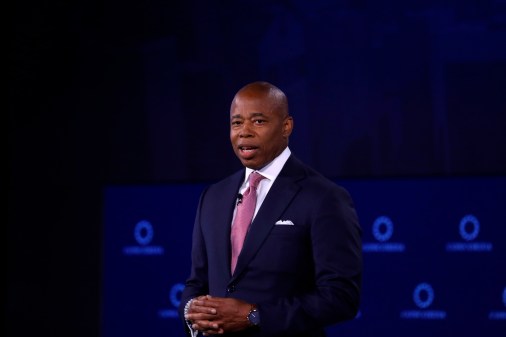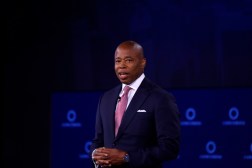Congressional advocates for city-run broadband revive their effort

Should states dictate how cities provide local broadband or does this authority belong to locals?
That’s the question posed to Congress after Sen. Cory Booker, a Democrat from New Jersey, introduced a bill that would give localities the right to build their own municipal broadband networks. Booker and some of the measure’s other sponsors introduced similar legislation in 2015.
Titled the Community Broadband Act of 2017, the legislation comes at a time when cities are concerned with corporate influence at the state level and are actively organizing against state authority and the influence of corporate broadband providers like Comcast and AT&T. On April 10 a new poll by the Pew Research Center found that 70 percent of Americans believed that cities had the right to organize their broadband networks, and last month, a group of more than 166 mayors and municipal leaders issued a set of policy endorsements for city’s to develop policies and regulations that would expand alternative public or private sector solutions for city broadband.
As a former mayor of Newark, New Jersey, Booker said that like many mayors, he saw that the city could find cheaper and faster broadband options if there were not constraints by state regulations that often favor traditional internet providers.
“Internet access is an economic necessity in today’s economy, but too many communities lack reliable access. I saw this problem first-hand as mayor of Newark,” Booker said in a statement. “In places where reliable, high-speed internet access is lacking, some municipalities have bridged the gap by investing in and offering broadband internet to their residents … Our bill will help remove these barriers by giving cities the flexibility they need to meet the needs of their residents.”
For now, Booker’s legislation has five other sponsors, but none are Republican — a fact that could hamper its potential in the GOP-controlled Congress. Democrats Edward Markey, of Massachusetts, Claire McCaskill of Missouri, Ron Wyden of Oregon and Richard Blumenthal of Connecticut joined Booker on the bill, along with Angus King of Maine, an independent.
The bill, which would amend the Telecommunications Act, signed into law in 1996, would apply to more than states and extend to the county level and tribal lands as well.





